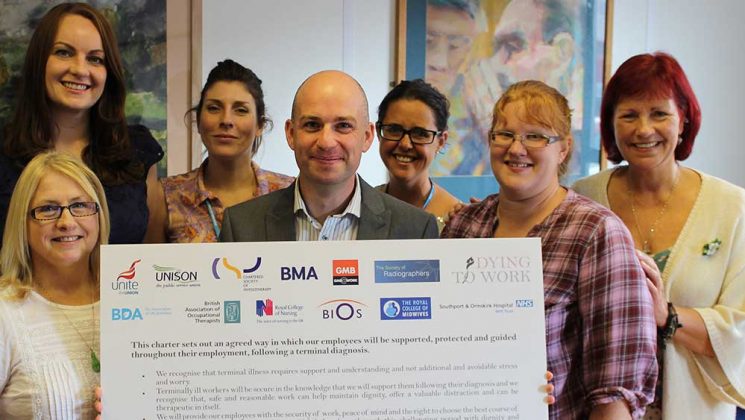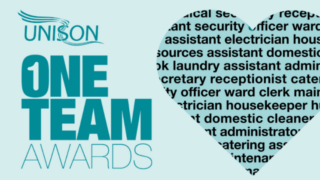Being diagnosed with a terminal illness is not something we like to think about or anticipate.
But what happens when a union member and employee is diagnosed is something health unions and employers in Southport and Ormskirk have turned their attention to.
Now the local hospital trust has become the first NHS employer to sign up the TUC Dying to Work charter after local unions brought the campaign to their notice.
People respond differently to a terminal diagnosis. Some want to leave work, but others want to stay in employment for various reasons: to protect their death-in-service entitlement; because they need the day-to-day income; or perhaps because they enjoy the stimulation of work and being part of their workplace.
Dying to Work charter
Work may have therapeutic value for some people with terminal illness.
But it is not unknown for workers with a terminal illness to be put through stressful HR capability assessments and ultimately be dismissed, even though they want to stay in work.
The voluntary charter commits them to support, protect and guide staff following a terminal diagnosis.
Speaking at this week’s signing, Southport and Ormskirk Trust interim chief executive Iain McInnes said: “The Trust recognises that staff members with terminal illnesses need support and understanding, especially when it comes to removing or reducing any stress and worry about their job.
“We are delighted to support this initiative.”
Sign the Dying to Work petition
UNISON branch secretary John Flannery, who signed the charter on behalf of the trust’s joint unions, commented: “Nobody should be forced to leave employment due to terminal illness and they should be afforded the right to choose their own path at the end of their life.
“In my experience, the trust has always been extremely supportive of staff who have been diagnosed with terminal illness.
“The decision to commit to the TUC charter was an easy one as it is the right thing to do.”
But he said, the fact that the trust has now formally committed itself to the charter, “is very welcome and could be of great benefit to individual staff in the future.
“I think that more employers could and should commit to the charter. I’d encourage other branches to approach their employers to sign up.”








